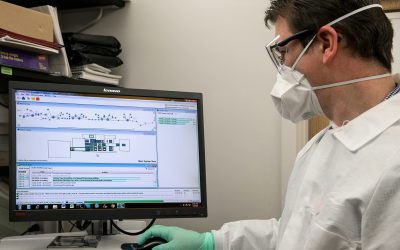Resumes are undoubtedly valuable in providing an overview of a candidate’s background, but they should not be the sole basis for making hiring decisions. In today’s dynamic job market, where skills, experiences, and even job titles are evolving rapidly, it’s essential to look beyond resumes to make informed hiring decisions. Modern approaches to candidate assessment, such as skills-based assessments, behavioral interviews, cultural fit evaluations, job auditions, and data-driven hiring, offer a more comprehensive and accurate view of a candidate’s potential. By embracing these approaches, organizations can better match candidates to job requirements, reduce hiring biases, and ultimately build stronger, more effective teams. Read more about 5 modern approaches to candidate assessment.
1. Skills-Based Assessments
One of the most effective modern approaches to candidate assessment is the use of skills-based assessments. Rather than relying solely on a list of skills and experiences listed on a resume, employers can evaluate a candidate’s abilities through practical tests, assignments, or simulations. This approach provides a more accurate and unbiased assessment of a candidate’s capabilities.
For example, if you’re hiring a software developer, you can ask candidates to complete a coding challenge or solve real-world programming problems. This not only gauges their technical skills but also their problem-solving abilities and creativity.
2. Behavioral Interviews
Behavioral interviews focus on a candidate’s past behaviors and experiences as indicators of future performance. Instead of asking hypothetical questions, interviewers inquire about specific situations candidates have faced in the past and how they handled them. This approach helps assess a candidate’s soft skills, such as communication, teamwork, adaptability, and problem-solving.
For instance, you might ask a candidate to describe a challenging project they worked on and how they overcame obstacles. This allows you to gain insight into their behavior, decision-making process, and interpersonal skills.
3. Cultural Fit Assessments
Assessing cultural fit is crucial for building a cohesive and productive team. Modern approaches to candidate assessment include evaluating a candidate’s alignment with the company’s values, mission, and work culture. This assessment goes beyond a resume and helps ensure that the new hire will integrate smoothly into the existing team.
To assess cultural fit, consider including questions about the candidate’s work preferences, values, and how they would handle various workplace scenarios. Additionally, you can involve team members in the hiring process to gauge the candidate’s compatibility with the current team.
4. Job Auditions and Trial Periods
In some industries, job auditions and trial periods have become popular ways to assess candidates. This approach allows candidates to work on real projects or tasks for a limited period, providing employers with firsthand experience of their skills and performance.
For example, a marketing agency might ask a candidate to create a campaign strategy or content for a client during a two-week trial period. This not only evaluates their skills but also their ability to adapt to the company’s workflow and deliver results.
5. Data-Driven Hiring
Modern technology has made it possible to gather and analyze vast amounts of data to inform hiring decisions. Tools like applicant tracking systems and predictive analytics can help identify top candidates based on a combination of factors, including skills, experience, and performance in assessments.
By using data-driven hiring, organizations can reduce bias, improve efficiency, and make more objective decisions when evaluating candidates. These tools can also help identify trends in candidate success and refine the hiring process over time.










